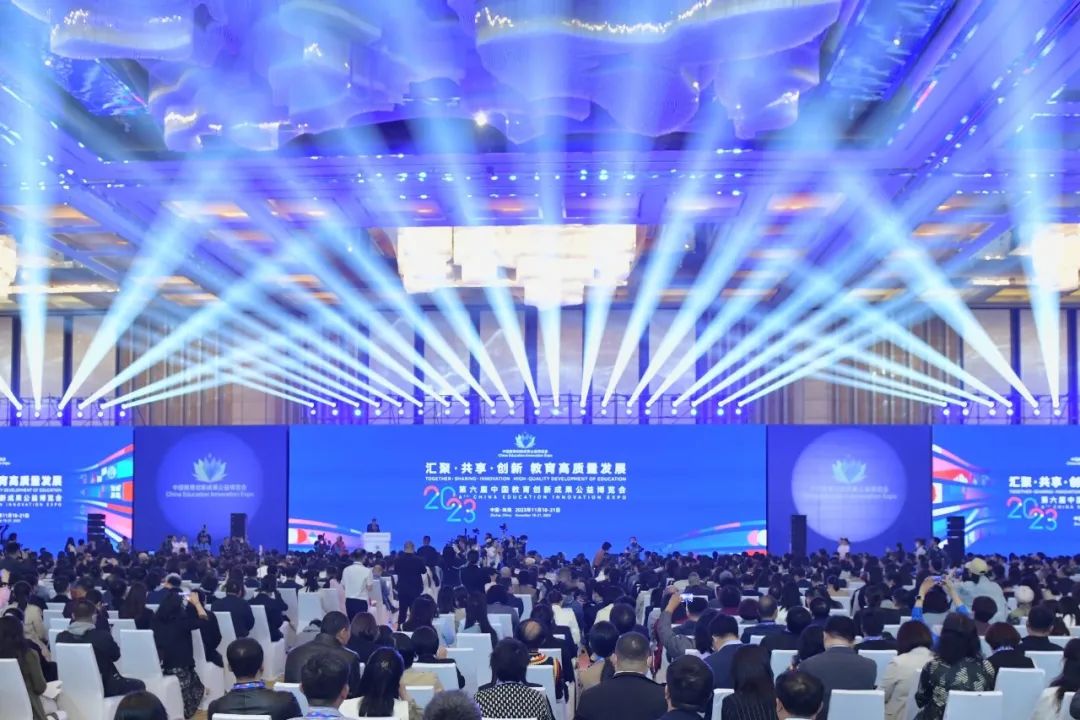Educators call for more reforms in rural areas
By Zhao Yimeng | China Daily | Updated: 2023-11-22 09:27

China needs to balance education resources and narrow the gap between urban and rural areas, ensuring students have equal access to high-quality education, experts said during the 6th China Education Innovation Expo in Zhuhai, Guangdong province.
Hosted by Beijing Normal University, the expo, which was held from Saturday to Tuesday, provided a platform for educators to share innovative achievements, thoughts and practices in basic and teacher education.
Song Hongyuan, an expert with the Office of the Central Leading Group for Rural Work, said during a panel discussion that although China has made strides in promoting equal education and rural teachers' conditions have improved, a gap still exists.
From 2010 to 2021, for instance, the teacher-student ratios for both primary and middle schools in urban areas were higher than those in rural areas, an indication of the unbalanced distribution of education resources.
Song said aging teachers are another problem for rural education. In 2021, rural teachers over 55 years of age accounted for 8.8 percent of the teacher population, 5.5 percentage points higher than in urban areas.
"Teachers are the key to improving education quality," Song said, adding that the age and educational background of teachers should be seriously considered to enhance the quality of rural education.
Wang Xiaoyi, a researcher from the Institute of Sociology at the Chinese Academy of Social Sciences, said some traditional problems of rural education have been solved, however, major changes are still needed to deal with root causes.
"We used to worry that kids in villages couldn't go to school. Now the nation's enrollment rate for basic education is actually quite high, reaching 95 percent for junior middle school," Wang said. "In the past, some schools might be the shabbiest construction in the countryside. Now, they often are the best buildings," he said.
Teachers' salaries are now the priority of many rural governments even when they are faced with fiscal difficulties, Wang said.
"The number of left-behind children is lower than those who follow their parents away from home, and some of them choose to stay home with their grandparents because village education is getting better."
However, deep-rooted problems remain, as rural students face challenges in pursuing further education at leading universities and landing a decent job after graduation.
"I believe equal education doesn't mean that the rural teaching system must catch up with the urban level, but that it must develop it into a special form that fits the conditions of villages," Wang said.
"We should make more efforts to help rural students not only obtain knowledge, but also develop diverse abilities. Many rural children will face uncertainties in the future that can't be handled through the knowledge they gained, but through their learning ability," he said, adding that the educational changes in rural areas should happen at a faster pace.
Apart from equal education, the expo also focused on issues including curriculum reform and digitalized education, launching more than 100 forums and brand events. More than 2,200 educational innovations were displayed in five exhibition halls, according to the organizer.
























